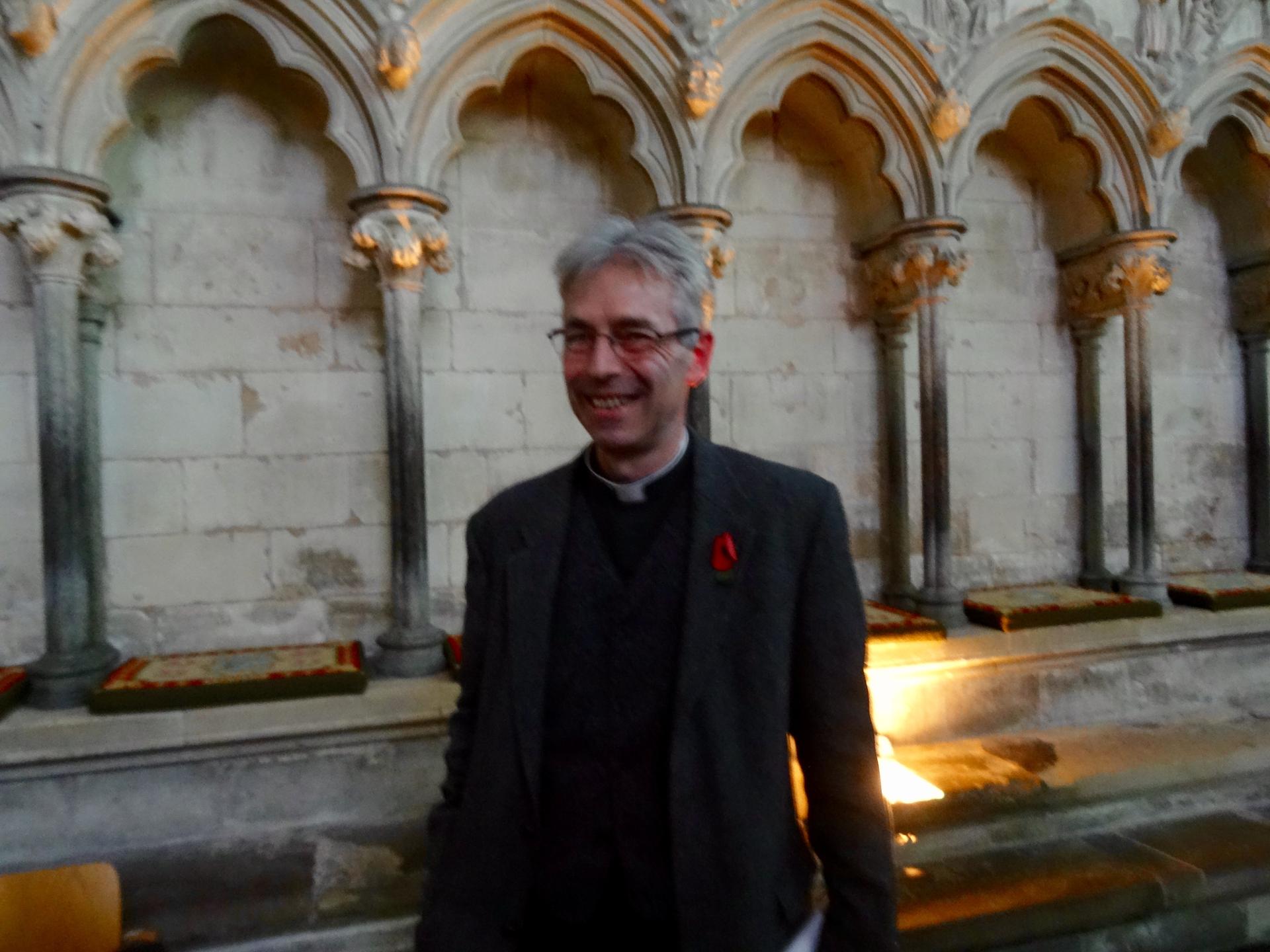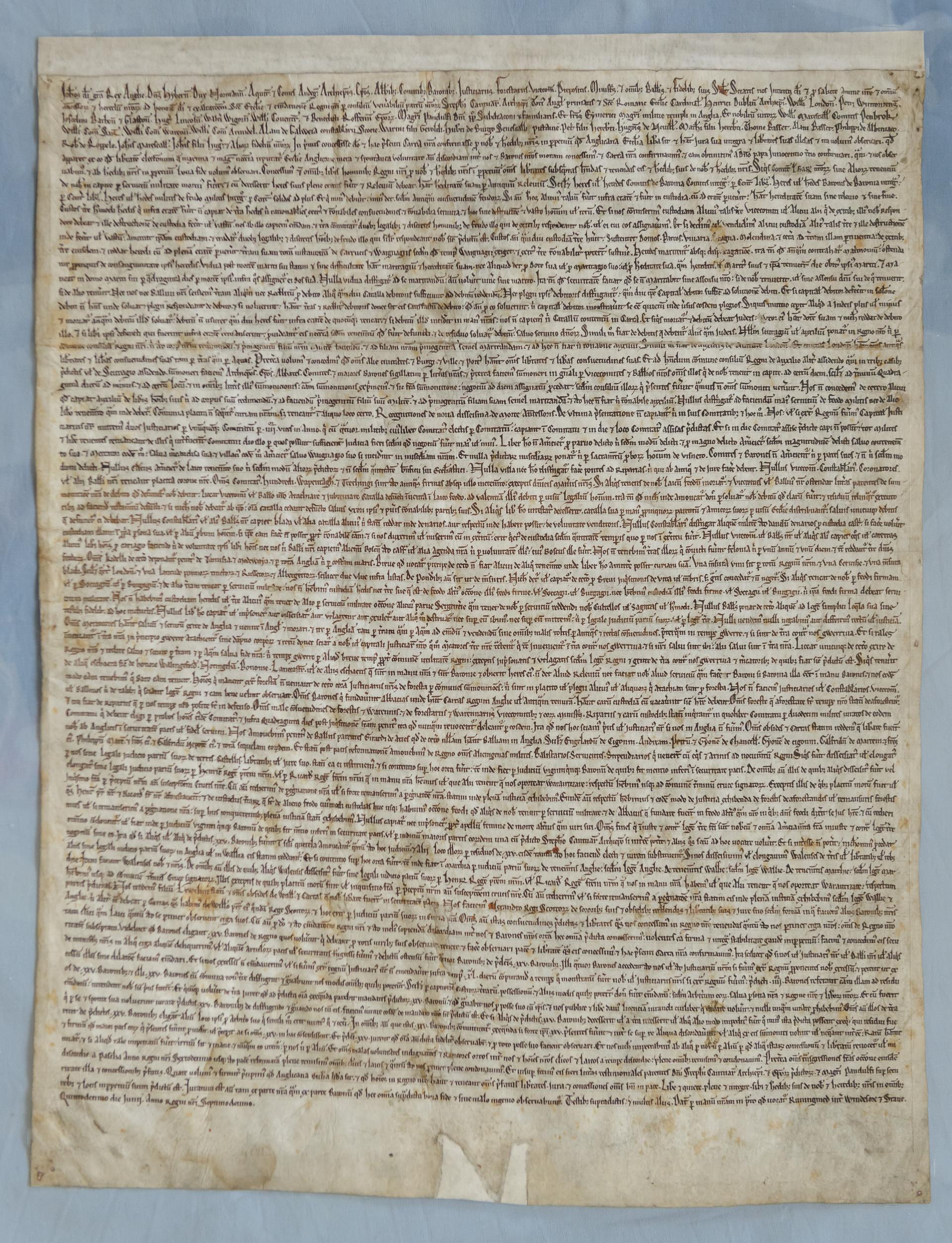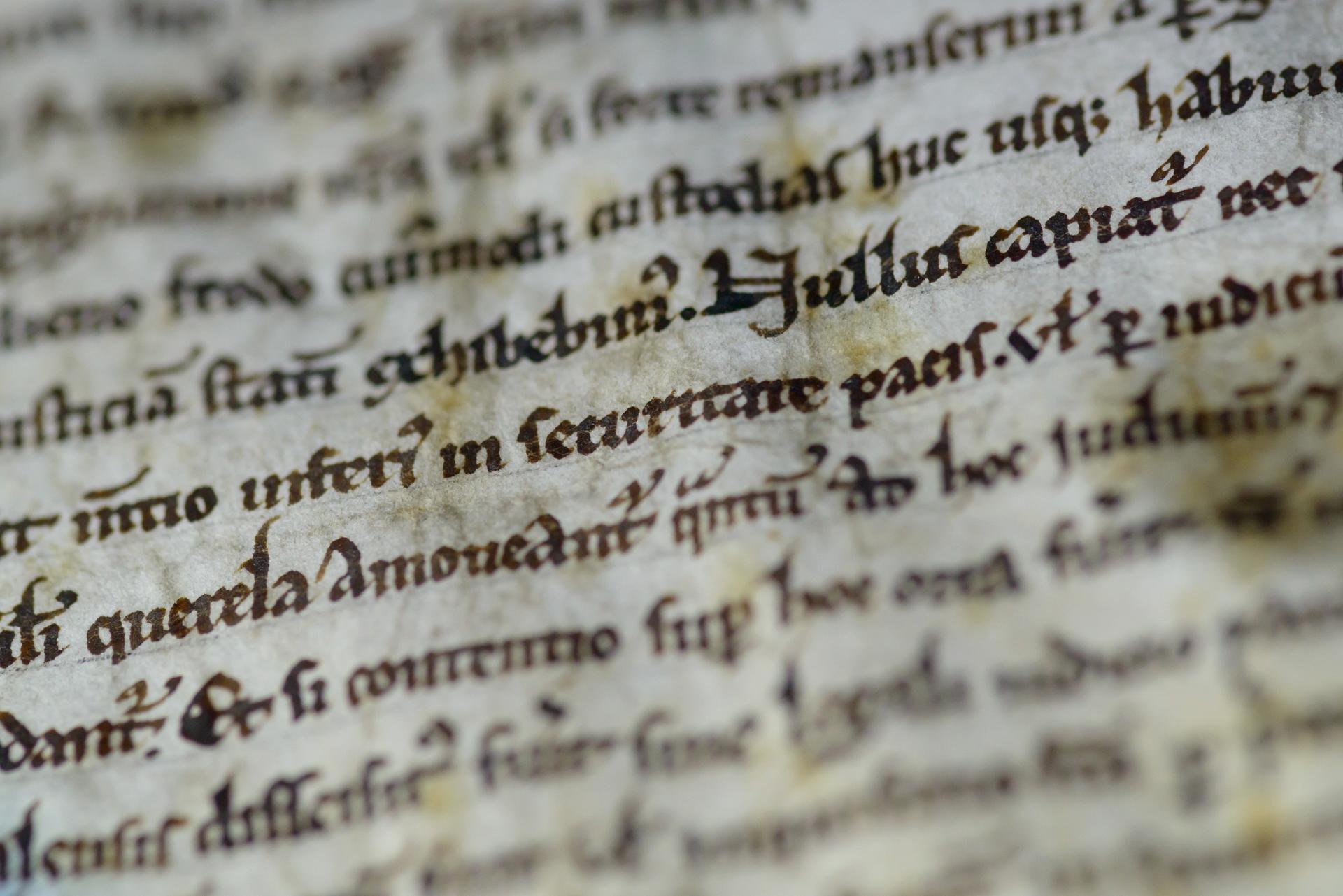Who knew the Magna Carta dealt with fish weirs and debt payments to Jews?
Magna Carta 1215 at Salisbury Cathedral – close up of part of the text.
Most people think they know the essence of the Magna Carta. The “Great Charter” pretty much established the rule of law and the notion that government has to have the consent of the governed — and it did.
But those principles are outlined in just a few sentences of a document that has almost 5,000 words.
So what was the rest of this verbiage about?
The Magna Carta is filled with references that — at first sight — seem incomprehensible, or trivial, today.
For example: "All fish-weirs shall be removed from the Thames [river]."

Or, "No town or person shall be forced to build bridges … except those with an ancient obligation to do so."
Then there's a bunch of clauses dealing with something that sounds really out of place today: how to handle debts owed to Jews when the debtor dies.
But it's all about context, and all these things were critically important to the great lords and bishops who wrote the Magna Carta, and forced King John to sign it.
Just like today, when you come across a bizarre sounding regulation — like hardware that's sold with the warning 'do not eat' — you just know that, somewhere along the line, someone did something really stupid, or abused a privilege.
And let's just say that King John committed plenty of abuses.
Most of them had to do with finding sneaky ways to take people's property, to raise funds or intimidating people into obedience.
Nowadays, we remember the limits that the Magna Carta imposed on government tyranny but what was probably more important to the people of the time, was the protection of property.
Now King John was not the tyrant portrayed in so many Robin Hood movies. In fact, he was a bit of an innovator, who was willing to challenge convention. And a patriot, trying to fight wars he couldn't really afford.
So let's just say he went a little too far trying to achieve his goals. For example, he arbitrarily imposed excessive inheritance taxes; disinherited widows and seized their property; and sold off natural resources that didn't really belong to the Crown.
He believed in a new idea: that as a King appointed by God, he was not bound by the same laws as mere mortals. Kind of like Richard Nixon.
So the great barons — who were the ones who suffered most from all this — decided to set limits on what the Crown could and could not do.
And that's why so much of the Magna Carta is about defining property rights, and the rights and responsibilities that go along with that like inheritance, indebtedness, the control of natural resources, the standardization of weights and measures, and so on.
So what was up with the fish-weirs that needed to be removed?
Well, that's a lobbying issue; a bit of a pork-barrel, really.
Powerful merchants wanted the rivers kept clear for navigation, and so they threw that in for good measure. Some things never change.

Also in this episode of The World in Words podcast: a conversation with Edward Probert, Canon Chancellor at Salisbury Cathedral where one of the four remaining copies of the Magna Carta lives. The World in Words podcast is on Facebook and iTunes.
We want to hear your feedback so we can keep improving our website, theworld.org. Please fill out this quick survey and let us know your thoughts (your answers will be anonymous). Thanks for your time!
